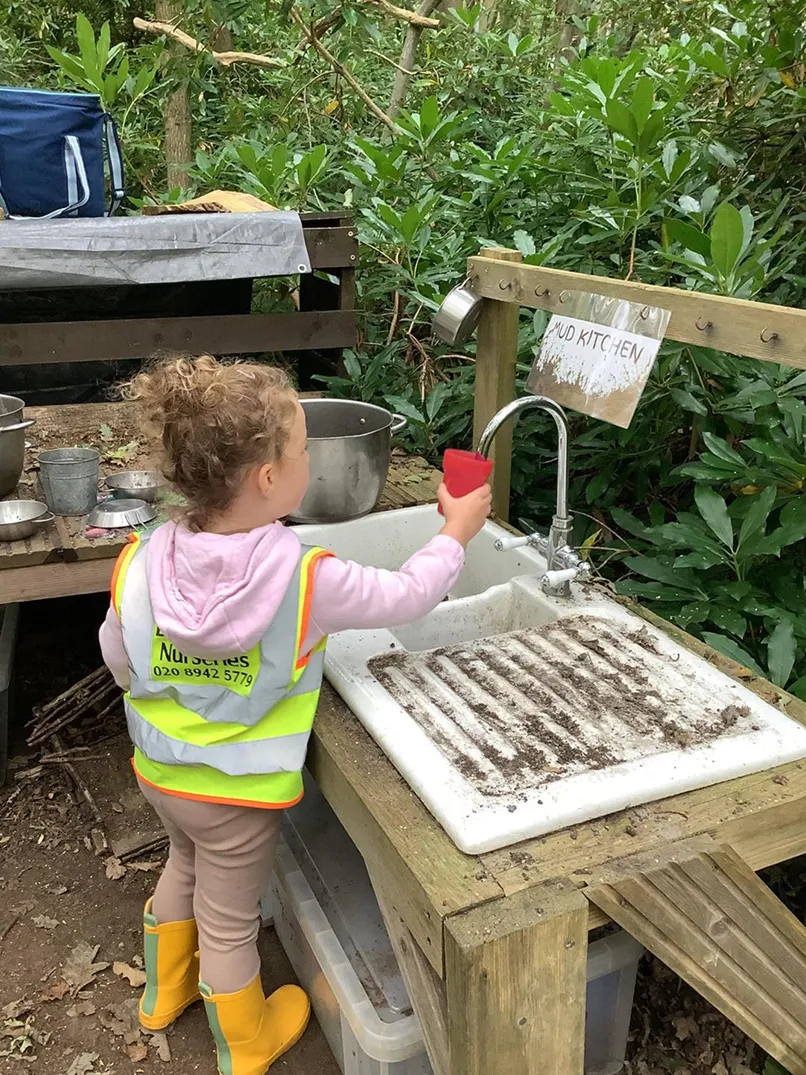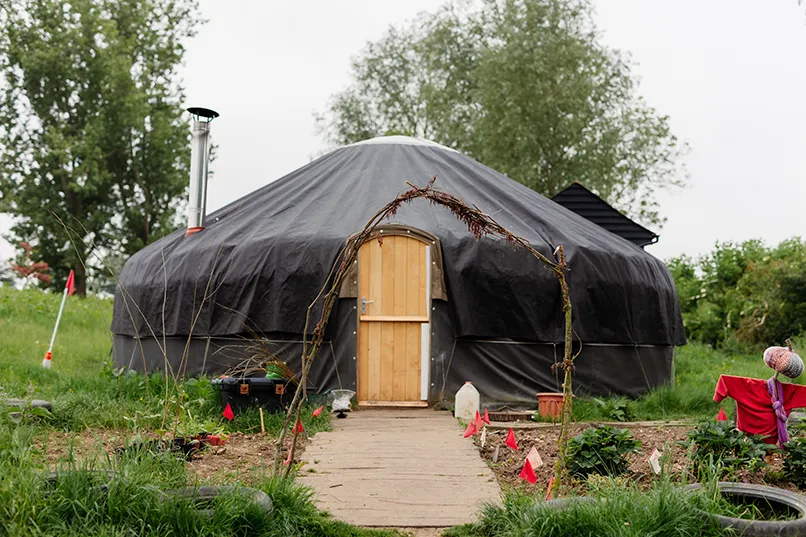About us
What is a Forest School Nursery? Discover the Wonder of Learning Through Nature
Forest School nurtures resilience, independence, and confidence through hands-on experience in the natural world.
Forest School is centred around outdoor learning, allowing children to develop their curiosity while in the fresh air, surrounded by wildlife, making it an ideal approach for early childhood education.
This methodology focuses on a more holistic way of learning, helping to build confidence and self-esteem in each and every child.
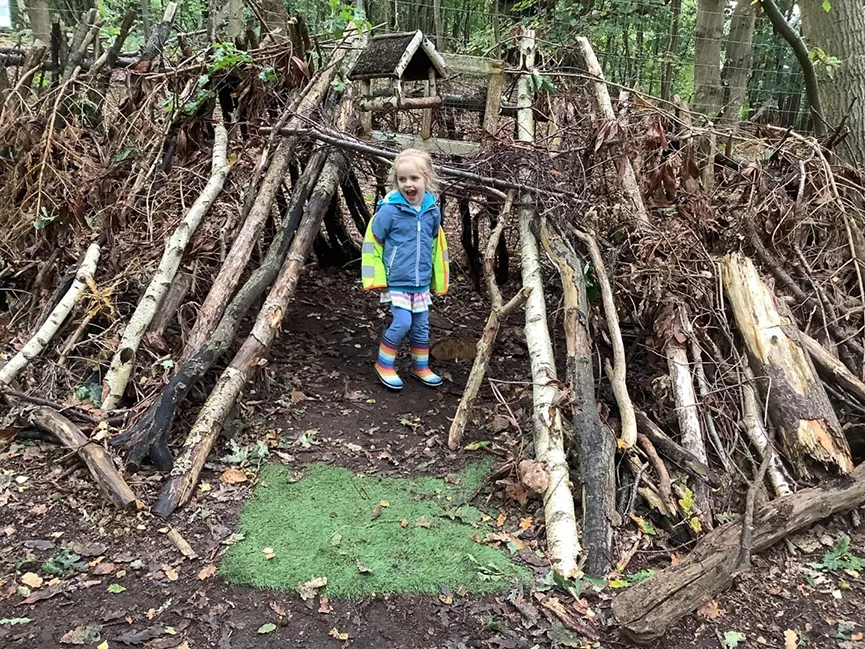
What is a Forest School nursery?
The Forest School ethos is a child-centric way of learning that is rooted in holistic development and takes learning beyond the traditional indoor classroom.
This style of education sets out to inspire a deep and meaningful connection to the world in each and every child, developing a deeper understanding of nature and how to co-exist with wildlife to create a more harmonious way of living that is specifically designed for Early Years aged children.
Forest School sessions support play, exploration and managed risks so children can be more confident learners for school and beyond. It aims to help social, emotional, spiritual, physical and intellectual development in all early years foundation stage.
Today, quality Forest School training is available via courses supplied by the Forest School Association within the UK, opening up this pedagogy to all early years settings with large outdoor spaces.
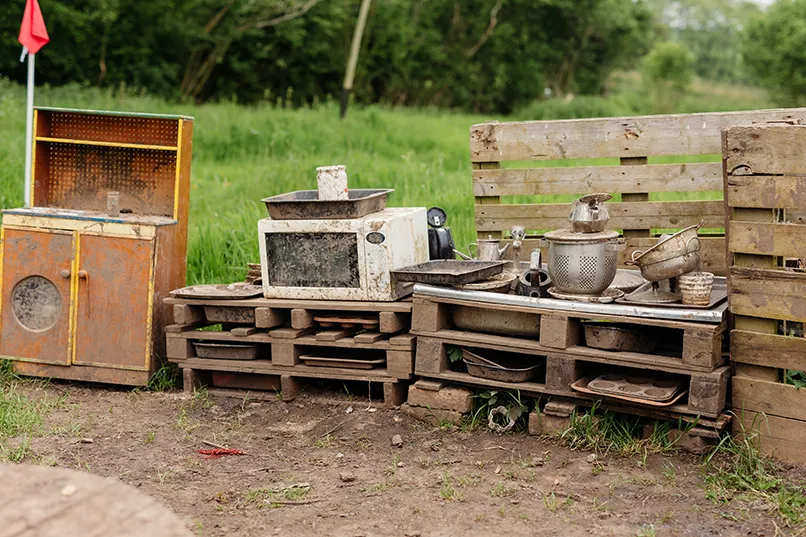
Key Principles of Forest School:
Nature-Based Learning
A woodland or natural environment, such as spacious gardens with a few trees, are perfect settings for forest schools to help children develop a strong relationship with the natural world.
When children have constant exposure to nature, they develop personal experiences with the outdoors, which cultivates environmentally sustainable attitudes that will stay with them at primary school and beyond.
Forest Schools monitor their ecological impact and make efforts to create a sustainable site management plan to ensure their natural environment can thrive long-term. Their outdoor environments are also used as a natural source of inspiration, enabling children to foster creativity and intrinsic motivation.
Child-Led Exploration
One of the main Forest School principles is to ensure that the child is at the centre of this methodology. Qualified Forest School practitioners ensure that their outdoor teaching styles and activities appeal to the interests of all children.
They do this by conducting a reflective practice at the end of each session to ensure that children are engaged and interested in the subject matter of the lesson.
Forest School leaders also intently observe children throughout the day and note how engaged they are within the session. As part of the Forest School approach, Forest School practitioners make necessary adjustments to their next lesson plan to ensure that each session is tailored to the children’s interests.
Risk and Resilience
Forest School sessions are built around managed risks to help children build confidence and resilience.
All Forest Schools follow a risk benefit process which is effectively managed by the qualified forest school leader using the required risk assessment.
Managed risk activities such as fire lighting, climbing trees and building dens develops confidence in all children, a skill that will give them confidence to safely step out of their comfort zones in other areas of life too.
Holistic Development
The Forest School approach aims to grow the physical, social, cognitive, linguistic, emotional and spiritual development in each and every child, in all aspects of life, not just in Forest School sessions.
When a Forest School leader is able to, they will link experiences they are learning in their session to home life to strengthen the Forest School learning process outside the nursery setting.
Qualified Forest School Practitioners
Qualified Forest School practitioners are the heart and soul of Forest School sessions. These trained professionals are dedicated to creating a safe and supportive learning environment where children can explore, discover, and learn in the natural world.
To become a Forest School practitioner, individuals must undergo rigorous training, including obtaining a Level 3 Forest School Practitioner qualification. This comprehensive training ensures they are well-versed in the principles of the Forest School ethos and equipped to lead engaging and educational sessions.
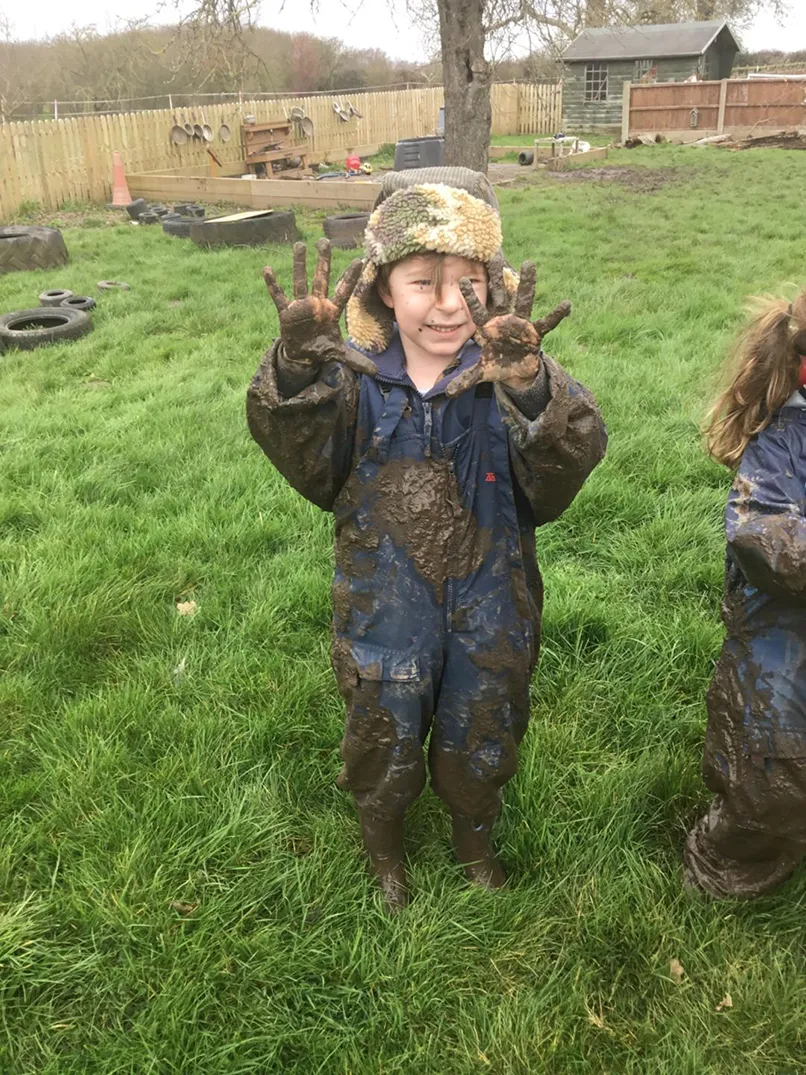
How Qualified Forest School Practitioners Inspire Learning
Forest Schools provides the foundations for a greater depth of learning in a more natural environment.
Practical Skills
Each Forest School session lays the building blocks of practical skills for later on in life. Activities like building a fire, climbing trees and tying knots, with the help of qualified Forest School practitioners, helps children develop fine motor skills, cognitive development, problem solving skills and more.
These activities generate the foundations for more complex practical skills found in real world scenarios such as using tools and solving mathematical problems.
Environmental Stewardship
Outdoor education and the Forest School community fosters a deep, long-term respect for natural environments and wildlife. Activities where children plant trees, learn about ecosystems and discuss everyone’s role in protecting the planet can help develop confidence in young people to advocate for nature and biodiversity when they are older.
Learning about wildlife and the planet can expose them to a wider variety of words, expanding their language development, awareness and communication skills.
Teamwork and Social Skills
Forest School experiences help foster positive relationships within both early years children and staff alike! Group tasks, like building dens with natural materials, teach children how to collaborate and communicate with each other and staff effectively.
Children can learn how to share ideas and take responsibility for tasks that have been assigned to them, skills that will help them in team projects later on in life.
Emotional and Physical Growth
Outdoor education provides plenty of opportunities to not only develop physical skills in younger children, but to grow their emotional development too. Activities that centre around taking managed risks, such as climbing trees and jumping on logs, develops physical development, balance and problem solving skills.
During these activities, children can assess challenges, make decisions to overcome them, and feel a sense of accomplishment and pride when they complete a task successfully on their own.
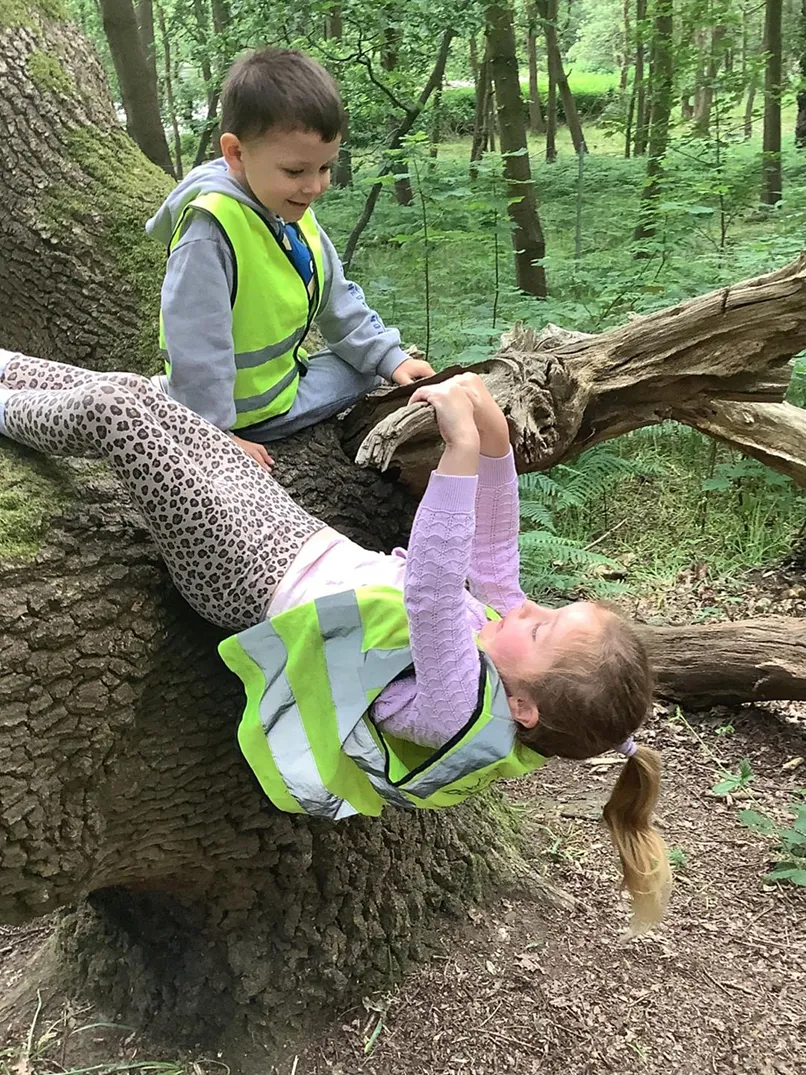
The Benefits of Forest Schools
There are a multitude of benefits which a Forest School provider can bring to early childhood education. Below are some of our favourites:
- Enhances problem-solving and critical thinking skills – Activities that use natural resources help children think critically about how best to use the items to achieve their objective. Through trial and error, children can strengthen their problem solving skills, making them more efficient learners for the future.
- Promotes physical health and well-being through outdoor activity – Having fun in the fresh air, with the room to run around and explore, helps develop children’s physical skills and fine motor development. Regular sessions in an outdoor environment also improves mental wellbeing in all ages, making people happier overall.
- Builds emotional resilience and confidence – Forest School learning gives children opportunities to explore new interests through outdoor play. Activities at Forest Schools like these, could be completely new to children, encouraging them to get out of their comfort zones to explore new interests and skills. This helps children build emotional resilience when trying something new and helps grow their confidence.
- Strengthens environmental awareness and responsibility – Outdoor learning also teaches children about environmental awareness and the foundations of sustainability and biodiversity. This is knowledge which help children make more eco-friendly choices when they are older and take responsibility to take care of the natural world around them.
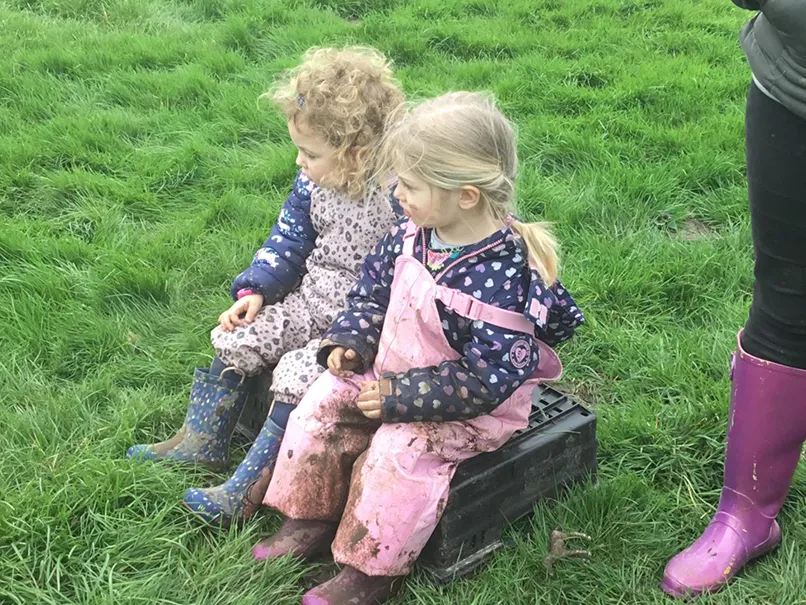
Typical Day at a Forest School
Every Forest School follows a different daily routine, tailored to the group of children participating in the Forest School sessions. That’s why it’s important to visit your chosen Forest School nursery to really get a feel for what nursery life is like before enrolling.
However, to give you insight into what it can look like, we spoke to one of our Forest School nurseries to see what a typical day would look like at their nursery and preschool:
